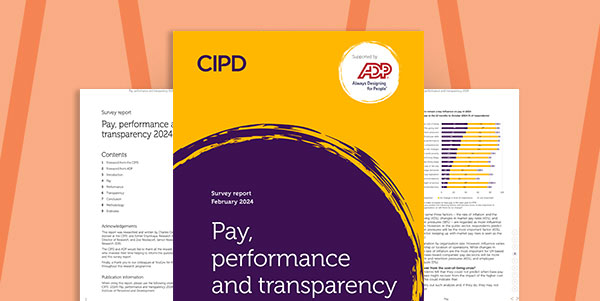Recruiting the wrong person costs five to 27 times more than the candidate’s annual salary, so getting it right from the outset is important.
A criminal record check helps you discover if your candidate has criminal convictions or any cautions on their record. To check criminal background information, you’ll need to run a DBS check. This is essential due diligence in the hiring process, especially for businesses that work with vulnerable people.
Worried that your company is among the 60% of companies that don’t perform a background search before hiring staff? With ADP’s BackCheck, you can hire candidates safely and confidently, every time.
The importance of criminal record checks
Criminal record checks and background searches should be a top priority in ensuring trust and safety in your organisation. Why are these background checks so important?
- For regulatory compliance.
- Minimise risks to employee safety.
- Address complex employment regulations (35% of companies now use external screening providers).
- Protect against liability and reputational damage from poor hiring decisions.
Basics of criminal record checks in the UK
The Disclosure and Barring Service (DBS) helps employers to make safer hiring decisions by providing a criminal record check.
The DBS prevents unsuitable individuals from working with vulnerable people through its barring functions. The service was established in 2012, replacing the previous CRB check.
Here’s a breakdown of the different types of Criminal Record Checks available.
- Basic Check: Share information with employers about unspent convictions or conditional cautions. This is applicable for any position, but in particular, those not involving direct contact with vulnerable groups.
- Standard Check: This includes spent and unspent convictions, cautions, reprimands, and warnings. It provides a more comprehensive history and is commonly used for functions in security, financial services, and legal professions.
- Enhanced Check: An enhanced check provides all of the information in the Standard Check plus any information held by local police. This is a requisite for roles requiring work with children or vulnerable adults, such as teaching and healthcare.
- Enhanced with Barred Lists Check: Includes all of the information in the Enhanced Check, plus a check of the DBS barred lists (lists of individuals barred from working with children or vulnerable adults). This is mandatory for positions where the candidate operates with high levels of responsibility, like policing, or has regular, unsupervised contact with vulnerable people, such as care work.
Criminal record checks in the UK are governed by laws to protect people’s data, avoid discrimination, and safeguard vulnerable people in society.
- Data Protection Act 2018: Ensures that personal data is processed lawfully and transparently. It provides individuals with rights over their data, including access and correction.
- Rehabilitation of Offenders Act 1974: Allows certain convictions to be considered 'spent' after a rehabilitation period. Once a conviction is spent, it does not need to be disclosed in most circumstances, protecting individuals from discrimination in the workplace based on their past.
- Safeguarding Vulnerable Groups Act 2006: This is the legal framework for vetting people who work with vulnerable groups and maintaining the barred lists.
Exploring background search services
Background checks work differently from criminal record checks. They look at a candidate’s history through holistic criteria, such as:
- Employment history verifies the accuracy of a candidate's job history.
- Educational qualifications: check academic history and professional qualifications against the candidate’s information provided.
- Credit checks: Assess a candidate’s financial history to get a better idea of how responsible they are with money.
Gather explicit consent from your candidate before you check criminal background information.
Be transparent about the scope of the checks, and handle all information safely and following data protection laws.
Background searches involve highly personal information. This means employers can often stumble into legal and ethical challenges without meaning to.
The goal is to be equitable in your hiring process. If biases interfere with your decision-making, you could be leaving yourself open to cases of unfair dismissal. For instance, if a candidate failed to disclose a spent conviction in the interview, and was later dismissed for failing to disclose this, they’d have legitimate reasons to bring a case against you for unfair dismissal.
Navigating the process of criminal record checks
There are several steps involved in checking criminal background information before you receive a DBS certificate for your candidate. Here’s a step-by-step guide to applying:
- Determine the type of check: Assess the role to choose the level of check you need (basic, standard, enhanced, or enhanced with barred lists). The criteria should be based on issues like direct contact with vulnerable adults, and whether they will be operating high levels of responsibility for others.
- Complete your application: Fill out the necessary online forms, which include personal details, addresses, and ID.
- Submit your application: The DBS application will be submitted by the hiring body. If any errors or inconsistencies are found, the DBS will return the application to the umbrella organisation within 24 hours for correction.
- Police National Computer (PNC) Search: If the application form is filled out correctly and no further verification is needed, the information is cross-referenced with the Police National Computer (PNC) database to check for any criminal records. If the PNC reveals any undisclosed offences, these will be flagged as issues on the check.
- Children’s and adults’ barred list checks: This step is only relevant for enhanced Criminal Record Checks, typically for those working with vulnerable people. The application information is checked against the barred lists to identify any matches. If an applicant is found on these lists, the organisation is legally barred from employing them.
- Local police force check: For enhanced Criminal Record Checks, the application is then sent to local police forces for additional verification. The police will check their records to make sure nothing is missed and that the DBS record is accurate. This stage can cause delays due to backlogs or the need to resolve conflicting information.
- Receive your certificate: The verified information is compiled into a DBS certificate. Printed standard and enhanced DBS certificates are mailed to the applicant, and the results are sent to their email address. If the job requires regular updates on the DBS status, it’s recommended they join the DBS Update Service within 14 days of receiving their certificate.
Why use UK background screening services
As you can see, background searches are an arduous, resource-heavy process.
Many organisations prefer to use accredited services instead, taking advantage of efficiency savings and ensuring compliance.
New employees cost businesses time, training, money, and internal resources. ADP’s BackCheck can help you hire candidates safely, securely, and with zero friction.

Perform background checks faster

Hire faster with more confidence

Keep up to date with employment laws

Reduce employee turnover

Protect your candidates personal data

Deliver a positive candidate experience
Read more about our comprehensive background screening solution ADP® BackCheck here.
Understand the impact and implications of a criminal record check
Candidates have legal rights in the process of criminal record checks and background searches. This means:
- Access to information: Individuals can legally request access to their records.
- Correction of inaccuracies: Individuals can request corrections if there are errors recorded on their record.
- Data privacy: People have the right to know how their information is used and handled in a lawful and compliant manner.
How to check criminal background information: best practices
Criminal record and background searches can be hampered by long processing times, inaccurate records, or privacy concerns – which can all affect the hiring process
To ensure things run smoothly, follow all legal guidelines. Obtain explicit consent for background checks, and communicate the reason and scope of these checks. HR systems should always stay on top of changes in law. By outsourcing background checks to a third party, you can benefit from global compliance teams that monitor legislation and regularly update their clients on changes.
If any inaccuracies or challenges arise during the DBS or background search processes, make sure to contact the DBS or the organisation that carried out the check to report this. The candidate will need evidence to support the correction of any errors that you’re requesting corrections for. If in doubt, don’t hesitate to speak to a legal team to quickly address these challenges.
The future of background checks in the UK
Technology has changed the way background checks are carried out. It’s never been easier to verify your candidates. Deep machine learning tools and AI are further emboldening this technology, offering faster data processing and searching tools, resulting in better quality data. These days, a background search can take minutes instead of weeks.
Laws are always changing, so it’s vital your organisation stays up to date. Third-party service providers, like ADP, help you carry out background checks seamlessly, helping you keep your company and people safe, and avoiding any liability.
35% of companies are turning to background screening providers to help them hire candidates more safely and securely.
As the demand for quick, reliable background checks gathers speed, providers like ADP will continue to be at the forefront of specialised background checks.
Conclusion
Criminal record checks and background search services are essential tools in establishing safe, trustworthy teams. HR functions can avoid expensive hiring mistakes by carrying out a background and criminal record check on potential candidates. Don’t be one of the 60% of companies left behind. See how ADP can handle the process for you–so you can hire faster and with more confidence.



